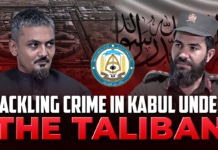January 2015 was dominated by the Charlie Hebdo killings in Paris, when gunmen opened fire on the Paris office of the Islamophobic and racist French satirical weekly.
On 7 January 2015 two brothers, Saïd and Chérif Kouachi, forced their way into the offices of the French satirical weekly newspaper Charlie Hebdo in Paris. Armed with assault rifles and other weapons, they killed 11 people and injured 11 others in the building.
After leaving, they killed a French National Police officer outside the building. The gunmen identified themselves as belonging to Al-Qaeda’s branch in Yemen, who took responsibility for the attack. Several related attacks followed in the Île-de-France region, where a further five were killed and 11 wounded.
On 11 January, about two million people, including more than 40 world leaders, met in Paris for a rally of national unity, and 3.7 million people joined demonstrations across France. The phrase “Je suis Charlie” became a common slogan of support at the rallies and in social media.
The killings almost immediately led to an Islamophobic backlash, with mosques being attacked and children being taken away from their Muslim parents.
Writing in 5Pillars, journalist Chris Bambery argued that Europe must confront its own irrational hatred of Islam and Muslims.
He said: “Segregation is a reality in France where the wounds of the Algerian war of independence remain open. After four or five decades the Turkish population of Germany very much remain “guestworkers.”
Subscribe to our newsletter and stay updated on the latest news and updates from around the Muslim world!

“Nor have we addressed our own recent history. The worst terrorist attack in recent years was carried out by a Nazi Norwegian. In France the Front National still honours its founder Jean Marie Le Pen who described the Holocaust as a ‘detail’ of history.
“Above all there remains the reality of Western ‘intervention’ across the Muslim world. It is a daily reality if not in the form of invasion and occupation but that of drone strikes. We create chaos and barbarism across the Middle East and then blame it on the inhabitants but I suppose that was ever the way with imperialism.
“We cannot talk about European civilisation without talking about the contribution Islam has made to it. Neither is Islam alien to Europe. Muslims have lived in Europe since the 8thcentury CE.”
And 5Pillars editor Roshan Muhammed Salih said he would never show any solidarity whatsoever with journalists who peddle racism and Islamophobia just because they belong to the same profession as him.
“There is no such thing as absolute freedom of speech,” he wrote. “We don’t yell ‘fire’ in a crowded space and watch as people get trampled to death. We don’t publish cartoons of Jews with big noses or black people with huge lips because we recognise that this would be anti-semitic and racist.
“So why do our ‘western values’ deem it acceptable to publish caricatures of the Prophet (pbuh) in pornographic poses? Or to generally portray brown-skinned Muslims as mad terrorists? The freedom to spread racist propaganda violates the freedom to live without racist propaganda.”
Scrap PREVENT
Meanwhile, in the UK a social cohesion think-tank called on the government to put an end to its PREVENT counter-terrorism strategy.
Claystone, which aims to foster social cohesion with British Muslims, said the government’s strategy of aggressively promoting “British values” and attempting to ideologically transform Islam was misplaced.

In a report by Professor Arun Kundnani entitled “Rethinking Radicalisation and Extremism”, Claystone said that counter-terror policy was currently far too broad-brush and radical religious ideology doesn’t automatically lead to acts of violence.
Instead, Professor Kundnani argued, counter-terror policy should be much more focused on individuals who can reasonably be suspected of intending to engage in a terrorist plot, finance terrorism or incite it.
Claystone also said that the best way of preventing terrorist violence was by actually widening the range of opinions that can be expressed, not restricting them
Claystone said: “Advocacy of the official narrative on the causes of terrorism has had a significant polarising effect on public discourse in Britain, contributing to a climate of systematic hostility to Muslims.
“This has happened in two main ways: The term ‘extremism’ is used selectively and inconsistently to construct Muslims as a suspect community and to discourage the expression of radical opinions.
“And the debate on multiculturalism is securitised so that a series of distinct issues involving Muslims in public life are interpreted through the lens of clashes over identity that can only be remedied by demands for assimilation.”
Some hope in Sri Lanka?
Finally, Sri Lanka’s long-time leader Mahinda Rajapaksa paid the price for authoritarian rule, nepotism and alienating the island’s minorities, including Muslims.
Official results from the January 8th presidential election showed Maithripala Sirisena, a former ally of Rajapaksa, had won 51.3% of the vote.
Mr Rajapaksa, in office since 2005, said on Twitter that he looked forward to a peaceful transition of power.
His supporters credit him with ending the civil war and boosting the economy, but critics say he had become increasingly authoritarian and corrupt.
Mr Sirisena had already received promises of support from Tamil and Muslim leaders before the election.

Sri Lanka’s largest Muslim political party defected from Rajapaksa’s government to support the opposition candidate. They had more than 20 lawmakers and ministers.
Writing in 5Pillars, humanitarian consultant Amjad Mohamed Saleem said he hoped that different communities would now unite.
He wrote: “Now there has been much speculation as to why Mahinda Rajapaksa lost the election, because it was his to lose rather than the challenger’s to win. In the end the truth is that the election was a badly placed gamble influenced by an astrologer.
“The incumbent still had two more years on his second term but felt compelled to shore up his flagging support amongst his traditional base (which is mainly the Sinhala Buddhist) vote. This was done largely through antagonizing the minority ethnic and religious communities, namely the Muslims.
“However, one can hardly avoid the fact that for years now, people have been talking about a need for a change.
“The fact is that corruption and nepotism had gotten so rampant; press and general media freedom had gotten so bad; the conduct of politicians had become untenable; and there was a danger of an arrogant regime doing what it pleased going down the route of authoritarianism…
“So the elections must be also viewed as a turning point in terms of the maturity of the electorate and could actually spark the end of the ethnic parties, at least for the Muslim community.
“In previous elections, the Sri Lanka Muslim Congress (the largest Muslim political party) has jockeyed for political positions and favours based on the number of votes they could muster, and based on how they could get their constituents to vote.
“However in this election, it was clear from the beginning that a large portion of the Muslim votes would go to the challenger. Thus Muslim politicians were forced to join the challenger because they needed to retain credibility with their constituents.”







![Monsoon Revolution: Bangladesh 2.0 [Short Film]](https://5pillarsuk.com/wp-content/uploads/2024/11/Monsoon-thumbnail-218x150.png)
![The Taliban’s war on drug addiction [Short film]](https://5pillarsuk.com/wp-content/uploads/2024/09/IMG_1988-2-218x150.png)











